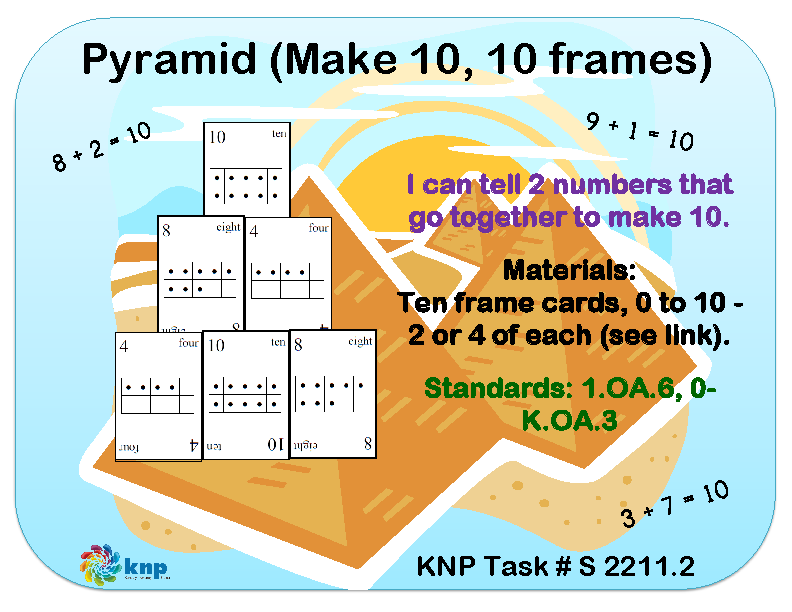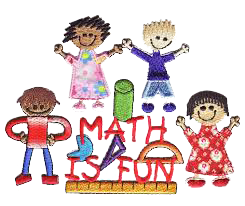“Pyramid (Make 10)”
KNPIG ID #S 2211.2
What's this activity about?
Values are represented in many different ways. Your child can practice combining values to make ten in this fun game based on the card game pyramid. They will be combining values to form ten from the pyramid in order to discover the mystery card. This is a great way to connect with your child while sharpening their addition skills. Have fun!
What materials do we need?
Ten frame cards, zero through ten, two or four of each.

How do we play?
Shuffle the cards and stack them in a deck. Select a “mystery card” and set it aside without looking at it. Then, place the rest of the cards in a pyramid shape face up. They can be in any order. Your child will choose two cards that make ten when put together. You can then fill in the empty space with another card from the deck. Your child will continue making pairs until there are no more cards in the deck and only one card of the pyramid remains. Then your child can then predict the “mystery card” based on the card left in the pyramid. Shuffle and play again.
Where’s the Math?
There is a lot of math in this game that goes along with what your children are learning in school. Your child is learning how to determine missing addends for totals up to ten with and without manipulatives. This activity will support your child by providing ten frames to help them find missing addends up to twenty. It is important to see addition as putting quantities together to come up with a total. It is also important to see when they split those quantities apart; it is the same as subtracting. The ten frames provides a great transition moving from seeing the values to visualizing the values when given a numeral.
Things to Think About:
This game is a great way to relate math to real life. Your child is learning now how math will show up in their everyday life. Make the connections while they are young and it will be easier for them to see it when working with more difficult math concepts. You can practice matching values that make ten with everyday objects. You can play basketball or soccer to ten points and stop intermittently to ask them how many more points they need to get to ten. Or you can practice with pennies to see how many more to make a dime.
You can also start challenging them by having them come up with combinations to make other numbers within ten. See if they can find all combinations that make eight or seven for example. This will help them see how many ways they can combine different numbers to make many other values.
Feedback
Send us your thoughts and ideas about these activities. Email the KCM

